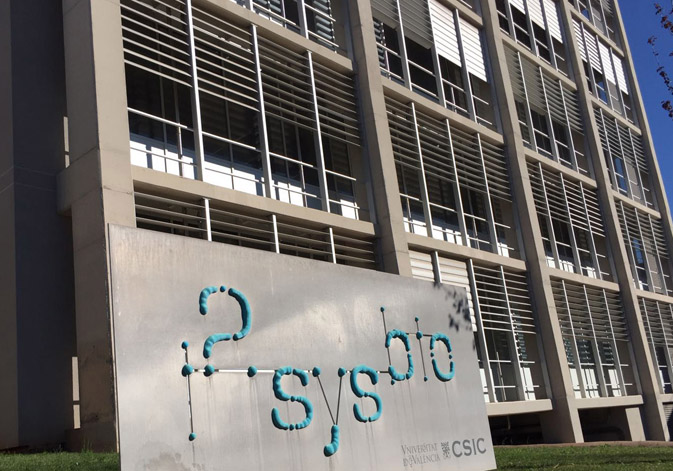Users
Social media
- More details here...
- Address
Parc Científic de la Universitat de València C/
Catedrático Agustín Escardino, 9
46980 Paterna (Valencia) Spain - Email:
iu.i2sysbio@uv.es - Phone:
(+34) 963544810
- Address
Links
The University of Valencia leads an Ibero-American network for the surveillance of the bacteria 'Xylella fastidiosa'

Investigation
The University of Valencia leads an Ibero-American network for the surveillance of the bacteria 'Xylella fastidiosa'

Juli Peretó, deputy director of the Institute of Integrative Systems Biology (I2SysBio), a mixed center for the Universitat de València and the CSIC, will be the coordinator of IBER-XYFAS, an Ibero-American network for the surveillance of Xylella fastidiosa sponsored by the Ibero-American Program of Science and Technology for Development (CYTED). This bacteria causes diseases in plants of great agronomic importance such as the olive or almond tree, and currently in the Mediterranean area it has already caused the death of thousands of crops.
The approval of the IBER-XYFAS network occurred at the last meeting of the CYTED General Assembly, an organization created by the governments of Ibero-American countries in order to promote cooperation on science, technology and innovation for development. The network will be developed in the area of Agri-Food, and is one of the seven new networks created for the year 2019, funded for four years.
Professor Juli Peretó is entrusted with the task of coordinating a network whose main objective is to increase scientific and technological relations between the main research groups, expert personnel, companies and regional governments involved in the fight against diseases caused by theX bacteria. fastidiosa.
According to Juli Peretó, “the arrival of this bacteria in Europe is recent and, with very good judgment, CYTED called for the creation of an international network that brings together countries that have been living with this pathogen for a long time, as is the case of Brazil, to be able to share knowledge and experiences among all.” Likewise, according to the specialist, "sharing this information will allow the development of a surveillance system at the service of governments to take measures to contain diseases, since at the moment we do not know how to cure them."
Despite its open nature, the network begins with a consortium of 32 groups, companies and institutions with agronomic responsibilities (such as the Valencian Institute of Agricultural Research IVIA or the corresponding plant health services of the Generalitat Valenciana, the Government Balearic Islands or the General Council of Aragon), belonging to 10 different countries (Argentina, Brazil, Costa Rica, Spain, United States of America, Guatemala, Italy, Mexico, Portugal and Chile). The IBER-XYFAS consortium also aims to raise awareness among citizens in general and farmers in particular about the seriousness of the diseases, currently incurable, caused by this bacteria that attacks numerous crops of great economic importance, including almond trees, olive trees, vineyards, citrus fruits and a great diversity of fruit trees.
Juli Peretó is a professor in the Department of Biochemistry and Molecular Biology of the University of València and is currently deputy director of the Institute of Integrative Systems Biology I2SysBio (joint center between the University of Valencia and the CSIC). Among its various lines of research, the study of metabolic evolution and the systems biology of microorganisms through computational models of their metabolism stands out.


